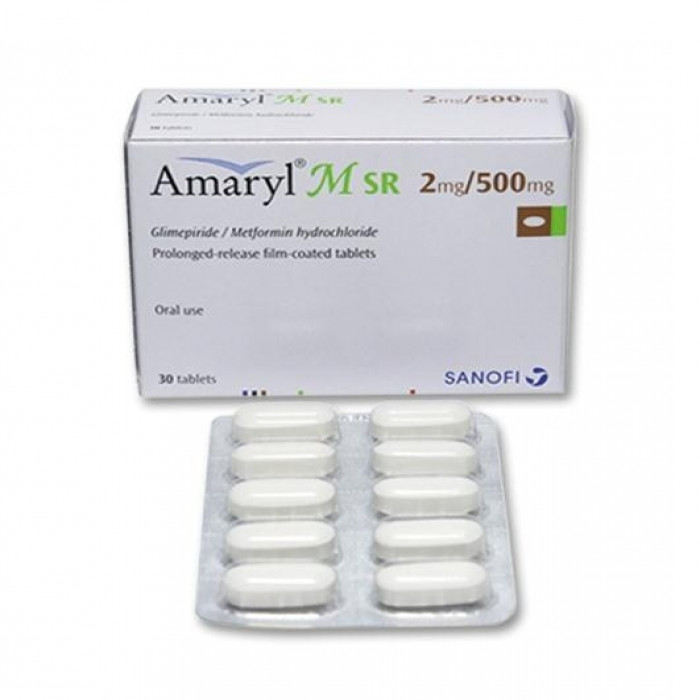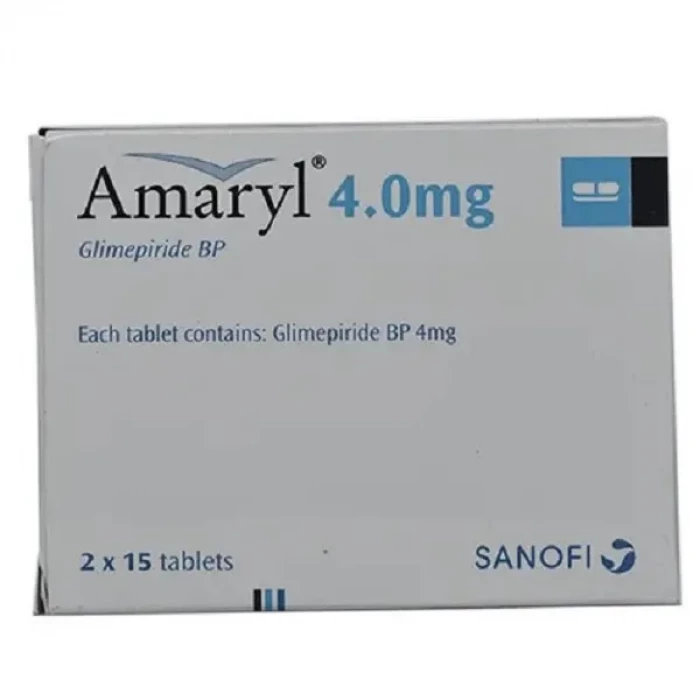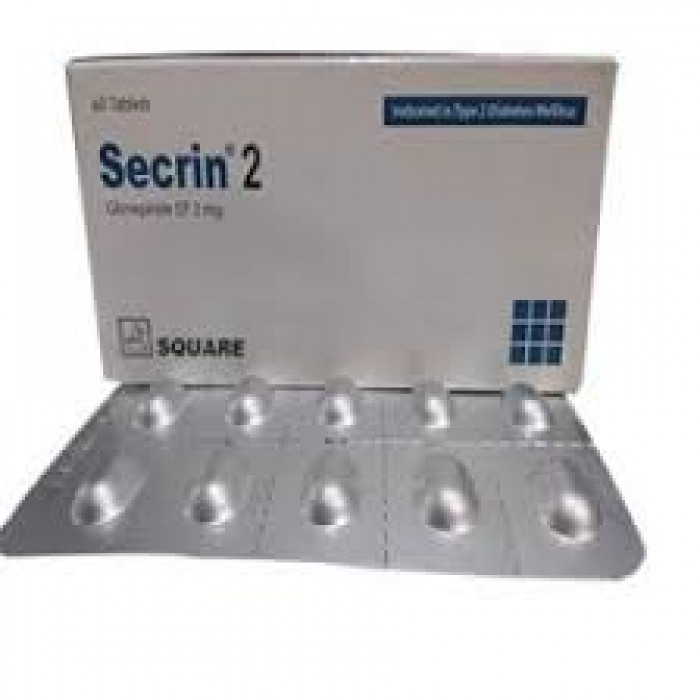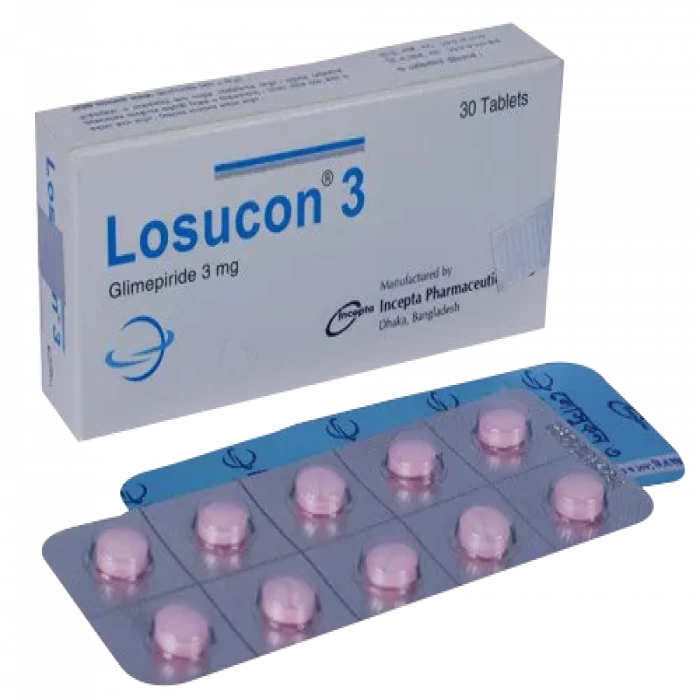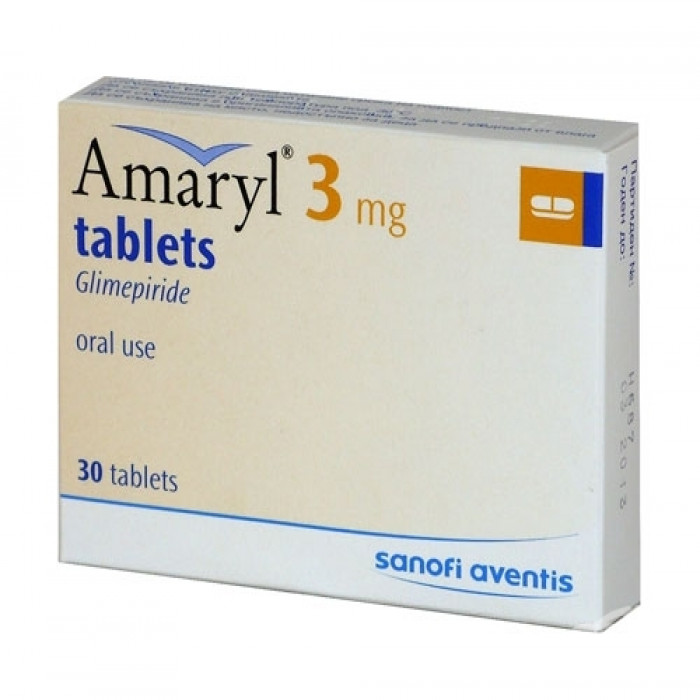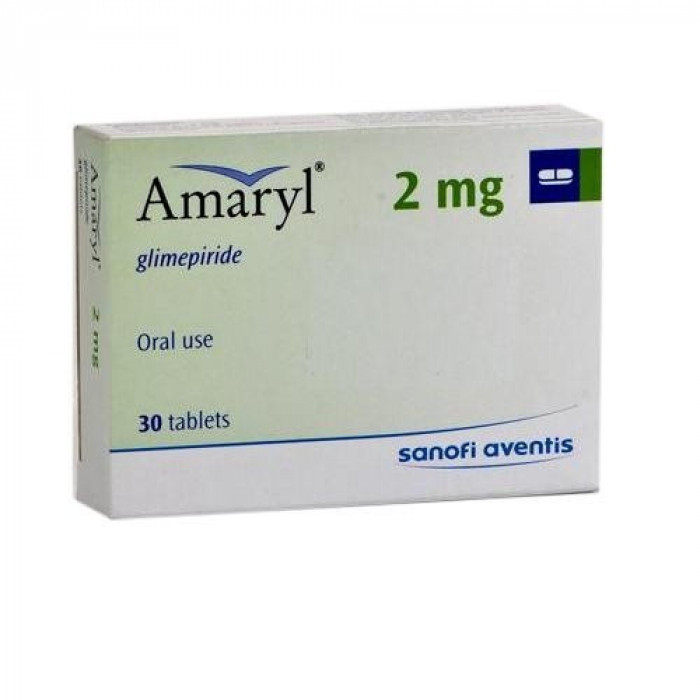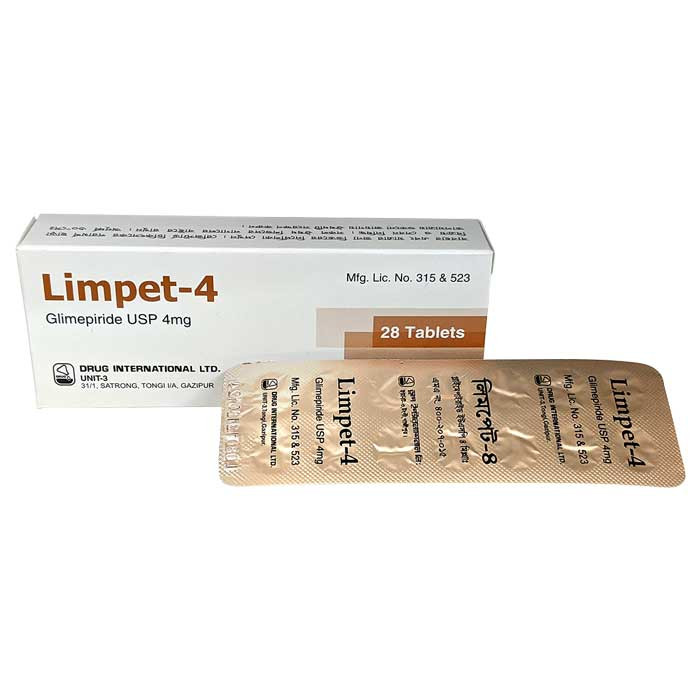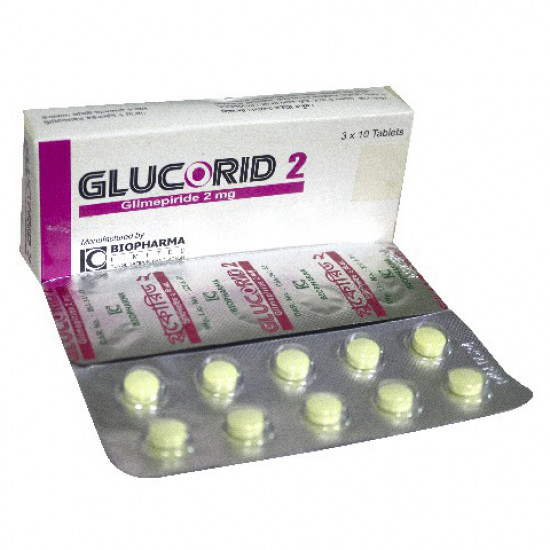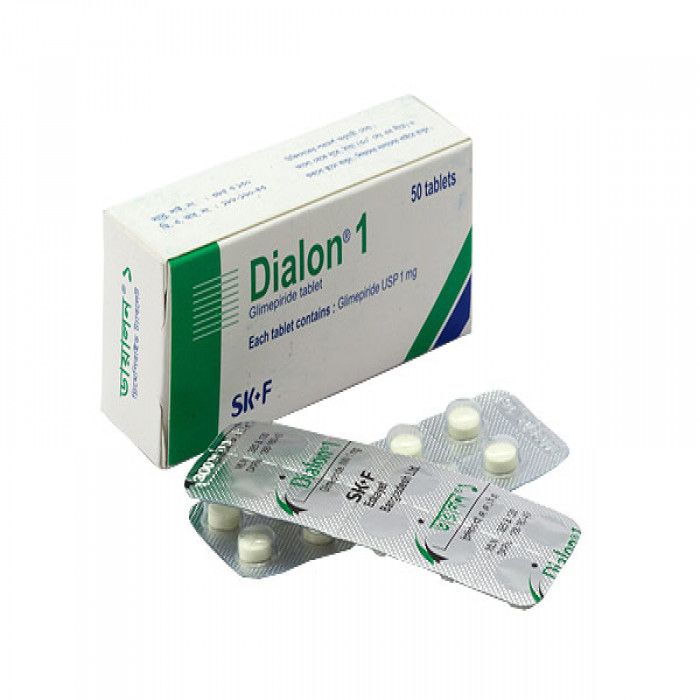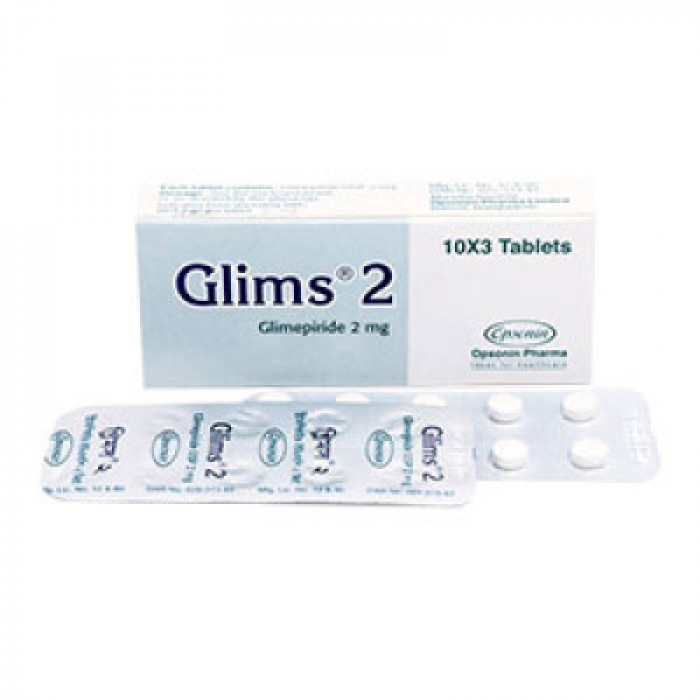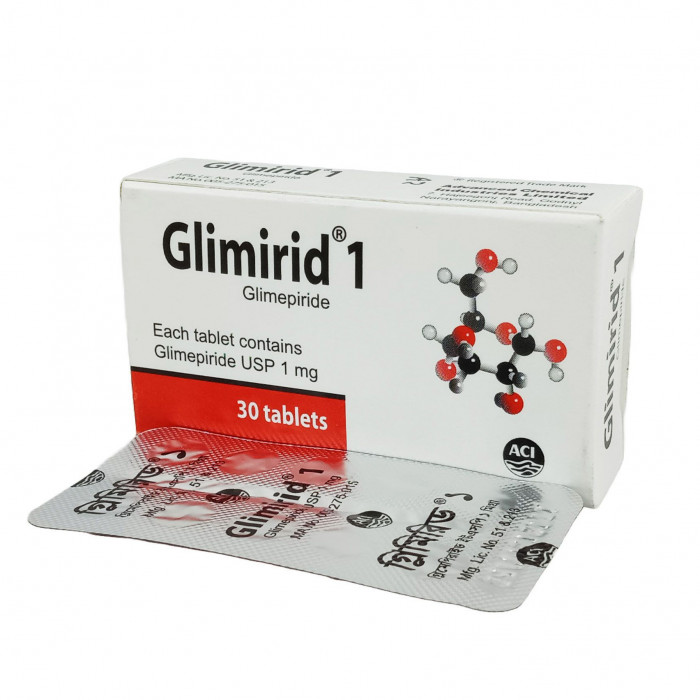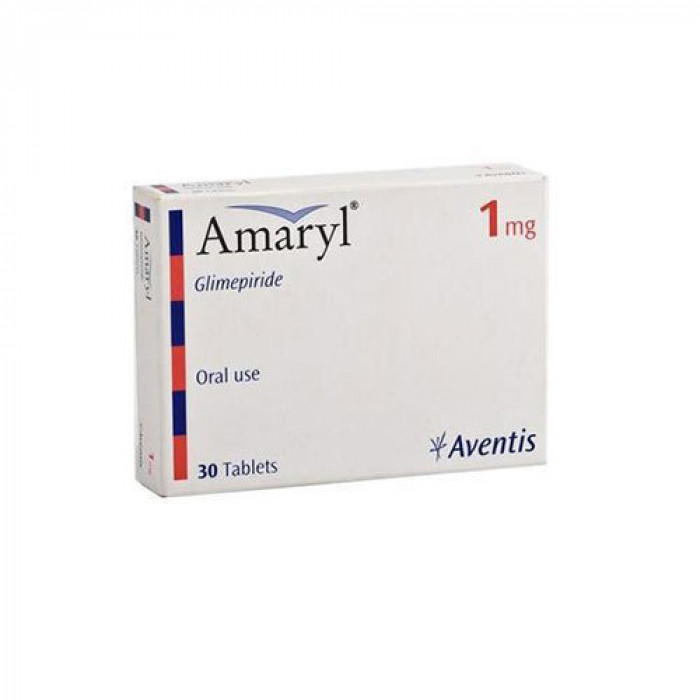

✔ 100% Authentic Product
👁️ Currently Viewing 1924
Glimepiride tablet is used in the treatment of type 2 diabetes mellitus when diet and exercise fail to control your blood sugar levels.
Discount
Price: ৳ 99
MRP:
৳
103.8
5%
Off

100% Genuine Products, Guaranteed

Safe & Secure Payments, Always

Fast, Secure & Efficient Delivery

Proper Packaging
 Cash on Delivery - All over Bangladesh
Cash on Delivery - All over Bangladesh Regular Delivery - 12-24 Hours, Dhaka City* Charge Tk.39-59
Regular Delivery - 12-24 Hours, Dhaka City* Charge Tk.39-59 Regular Delivery - 24-48 Hours, Other Cities* Charge Tk.99-110
Regular Delivery - 24-48 Hours, Other Cities* Charge Tk.99-110
 ফ্রি ডেলিভারিঃ - ৯৯৯ টাকা+ অর্ডারে, ঢাকা
শহরে
ফ্রি ডেলিভারিঃ - ৯৯৯ টাকা+ অর্ডারে, ঢাকা
শহরে ফ্রি ডেলিভারিঃ - ২৯৯৯ টাকা+ অর্ডারে, ঢাকার
বাহিরে
ফ্রি ডেলিভারিঃ - ২৯৯৯ টাকা+ অর্ডারে, ঢাকার
বাহিরে
100% Genuine Products, Guaranteed
Safe & Secure Payments, Always
Fast, Secure & Efficient Delivery
Proper Packaging
 Cash on Delivery - All over Bangladesh
Cash on Delivery - All over Bangladesh Regular Delivery - 12-24 Hours, Dhaka City* Charge Tk.39-59
Regular Delivery - 12-24 Hours, Dhaka City* Charge Tk.39-59 Regular Delivery - 24-48 Hours, Other Cities* Charge Tk.99-110
Regular Delivery - 24-48 Hours, Other Cities* Charge Tk.99-110 ফ্রি ডেলিভারিঃ - ৯৯৯ টাকা+ অর্ডারে, ঢাকা
শহরে
ফ্রি ডেলিভারিঃ - ৯৯৯ টাকা+ অর্ডারে, ঢাকা
শহরে ফ্রি ডেলিভারিঃ - ২৯৯৯ টাকা+ অর্ডারে, ঢাকার
বাহিরে
ফ্রি ডেলিভারিঃ - ২৯৯৯ টাকা+ অর্ডারে, ঢাকার
বাহিরে
✅ Description:
Amaryl 1mg Tablet, a sulfonylurea antidiabetic, is prescribed to lower elevated blood sugar levels in Type 2 diabetes (non-insulin-dependent diabetes mellitus - NIDDM). It addresses insufficient insulin production or ineffective insulin function in this condition.
Containing Glimepiride, Amaryl 1mg Tablet influences insulin-secreting beta cells in the pancreas. By activating calcium channels in these cells, it facilitates insulin release. This insulin prompts cells to absorb glucose, reducing elevated blood sugar and managing Type 2 diabetes symptoms.
Administer Amaryl 1mg Tablet as directed by your doctor. Allergic reactions, liver issues, seizures, low glucose levels, and other side effects may occur, but most are self-resolving. Do not halt usage without consulting your doctor, as abrupt discontinuation can elevate sugar levels and risk complications like retinopathy, nephropathy, and neuropathy. Amaryl 1mg Tablet is unsuitable for Type 1 diabetes or severe kidney/liver disease. Inform your doctor about heart conditions, pregnancy plans, or breastfeeding intentions.
Safety Advices

Alcohol
UNSAFE
Avoid consumption of alcohol while taking Amaryl 1mg Tablet as it may increase the risk of unwanted side effects.

Pregnancy
CONSULT YOUR DOCTOR
Avoid using Amaryl 1mg tablets during pregnancy. Notify your doctor if you are pregnant, suspect pregnancy, or have pregnancy plans. Your doctor might consider transitioning you to insulin therapy.

Breastfeeding
CONSULT YOUR DOCTOR
Glimepiride can pass into breast milk and should be avoided while breastfeeding. If you're taking Amaryl 1mg tablets (under a doctor's prescription) and breastfeeding, closely observe your baby for indications of low blood glucose, such as restlessness, drowsiness, feeding difficulties, seizures, or low body temperature.

Driving
CAUTION
Do not drive or operate any heavy tools or machines if your ability is affected by Amaryl 1mg Tablet.

Kidney
CONSULT YOUR DOCTOR
Amaryl 1mg Tablet is cautioned against in individuals with severe kidney issues and should be used cautiously in those with other kidney problems. Therefore, seek advice from your doctor before using it.

Liver
CONSULT YOUR DOCTOR
Amaryl 1mg Tablet is not recommended for use in patients with severe liver problems and should be used cautiously in patients with other liver issues. Hence, consult your doctor prior to taking it.
✔️ Uses of Amaryl 1mg Tablet
- Treats Type II Diabetes Mellitus
✔️ How does Amaryl 1mg Tablet work?
Amaryl 1mg Tablet is an antidiabetic medicine. It stimulates the pancreas to secrete more insulin (a hormone involved in glucose metabolism). It also makes our body more sensitive to insulin which helps in digesting the circulating sugars (glucose) in the blood, thereby reducing blood sugar levels.
✔️ Side Effects of Amaryl 1mg Tablet
- Headache
- Nausea
- Shock
- Allergic reactions
- Abnormal liver function
- Blood pressure drop
- Including skin and eye yellowing (jaundice)
- Bile flow issues (cholestasis)
- Liver inflammation (hepatitis) or failure of the liver
✔️ Quick Suggestions:
- Exercise regularly, eat a healthy diet, and take your other diabetes medicines (if prescribed) alongside.
- Be careful while driving or operating machinery until you know how Glimepiride affects you.
- It can cause hypoglycemia (low blood sugar level) when used with other antidiabetic medicines, alcohol, or if you delay or miss a meal.
- Always carry some sugary food or fruit juice with you in case you experience hypoglycemic symptoms such as cold sweats, cool pale skin, tremors, and anxiety.
- Your doctor may check your liver function regularly. Inform your doctor if you develop symptoms, such as abdominal pain, loss of appetite, or yellowing of the eyes or skin (jaundice).
- Monitor your blood sugar level regularly while you are taking Glimepiride.
✔️ Indication
Glimepiride is prescribed to patients with type 2 diabetes when their hyperglycemia cannot be managed through diet, exercise, and weight loss alone. It is used to lower blood glucose levels by either supplementing diet or in combination with oral hypoglycemic agents. In cases where diet and exercise are insufficient or with an oral hypoglycemic agent, glimepiride can also be combined with insulin to effectively control blood sugar levels.
✔️ Pharmacology
Glimepiride stimulates the insulin release from pancreatic β-cells and reduces glucose output from the liver. It also increases insulin sensitivity at peripheral target sites.
✔️ Dosage & Administration of
- In theory, the desired blood sugar level determines the Glimepiride dosage. The smallest Glimepiride dosage necessary to achieve the desired metabolic control must be used. Based on the findings of routine checks of blood and urine glucose levels, the initial and maintenance doses are determined. Monitoring the amount of glucose in the blood and urine also helps to identify treatment failure, either primary or secondary.
- Initial dose and dose titration: The initial dose is typically 1mg once daily, but this can be increased as needed. Any increase should be gradual, i.e., carried out in steps over intervals of one to two weeks, and can be based on routine blood sugar monitoring. For example: 1mg, 2 mg, 3 mg, 4 mg, and 6 mg.
- Dosage in patients with well-controlled diabetes: Patients with well-controlled diabetes typically receive a dose ranging from 1 to 4 mg per day.
Dose distribution: Taking into account the patient's current lifestyle, the doctor determines the timing and distribution of doses. Typically, one dose per day is sufficient. If no substantial breakfast is consumed right away before the first main meal, this should be taken. It's crucial to avoid skipping meals after taking the medication. - Secondary dosage adjustment: As diabetes, control improves, sensitivity to insulin rises; as a result, as treatment progresses, Glimepiride requirements may decrease. The prompt dose reduction or discontinuation of Glimepiride therapy must be taken into consideration to prevent hypoglycemia. Every time the patient's weight, lifestyle, or other factors change and make them more susceptible to hypo- or hyperglycemia, a dose adjustment must be taken into account.
- Switching from other oral antidiabetics to glimepiride: Glimepiride and other oral blood sugar-lowering medications do not have a precise dosage relationship. The initial daily dose of Glimepiride is 1mg when replacing other similar medications; this holds true even when switching from the maximum dosage of other oral blood sugar-lowering medications. Any dose increase must follow the instructions in "initial dose and dose titration" above. The effectiveness and duration of the previous blood sugar-lowering medication must be taken into account. To prevent additive effects that would raise the risk of hypoglycemia, treatment may need to be stopped.
Administration
- The Amaryl tablet needs to be taken whole, without chewing, and with enough liquid (roughly a half glass).
- Take it right before or alongside your morning meal (usually breakfast). Don't skip meals.
✔️ Interaction
Anabolic steroids, male sex hormones, chloramphenicol, coumarin derivatives, Fluoxetine, MAO inhibitors, Miconazole, Para-aminosalicylic acid, Pentoxifylline (high dose parenteral), Phenylbutazone, Oxyphenbutazone, quinolones, salicylates, sulphonamides, tetracyclines, and beta blockers may all potentiate the With Acetazolamide, barbiturates, corticosteroids, Diazoxide, diuretics, epinephrine, and other sympathomimetic agents, laxatives, estrogens and progestogens, phenothiazines, phenytoin, Rifampicin, and thyroid hormones, the blood sugar-lowering effect may be lessened. Clonidine and Reserpine are H2 -receptor antagonists that may either strengthen or weaken the blood sugar-lowering effect. Acute and long-term alcohol use may unexpectedly strengthen or weaken Glimepiride's ability to lower blood sugar.
✔️ Contraindications
Glimepiride is not suitable for the treatment of insulin-dependent (type-I) diabetes mellitus, or of diabetic pre-coma or coma. Glimepiride must not be used in patients hypersensitive to Glimepiride or other sulphonylureas.
✔️ Pregnancy & Lactation
Glimepiride must not be taken during pregnancy; a changeover to Insulin is necessary. Patients planning a pregnancy must inform their physician and should be shifted to Insulin. Lactation: Ingestion of Glimepiride with breast milk may harm the child. Therefore, Glimepiride must not be taken by lactating women. Either a changeover or a complete discontinuation of breastfeeding is necessary.
✔️ Precautions & Warnings
- The risk of hypoglycemia may be increased during the first few weeks of treatment, necessitating careful monitoring.
- The dosage of Glimepiride may need to be changed if this risk is present.
- Use in Special Populations Pediatric use: Safety and efficacy in pediatric patients have not been established. Hypoglycemia can almost always be quickly controlled by immediate intake of carbohydrates (glucose or sugar, for example, sugar-sweetened fruit juice or sugar-sweetened tea).
- Geriatric use: Overall, there were no differences in safety or effectiveness between elderly and adult subjects, but it is possible that some older people may be more sensitive. The risk of toxic reactions to this medication may be higher in patients with impaired renal function because the drug is known to be substantially excreted by the kidney. Renal function should be carefully considered when choosing a dose because elderly patients are more likely to have decreased renal function. It may also be helpful to monitor renal function.
- Use in renal insufficiency: Patients with NIDDM who have kidney disease may receive a starting dose of 1mg of glimepiride, and the dose may be adjusted based on fasting blood glucose levels.
- Use in hepatic insufficiency: Hepatic insufficiency patients were not the subjects of any studies. Negative effects include hypoglycemia. Dizziness, asthenia, headache, and nausea are adverse events besides hypoglycemia.
- Effects of Overdose Overdosing, whether accidental or intentional, can result in severe, protracted hypoglycemia that can be fatal.
- Glimepiride overdose cases must be reported right away to a doctor. If a doctor has not already begun treatment, the patient must take sugar right away, preferably glucose, at the first sign of hypoglycemia.
✔️ Storage Conditions
Do not store at temperatures above 30°C. Keep out of the reach of youngsters and away from light.
⚠️Disclaimer:
At ePharma, we’re committed to providing accurate and accessible health information. However, all content is intended for informational purposes only and should not replace medical advice from a qualified physician. Please consult your healthcare provider for personalized guidance. We aim to support, not substitute, the doctor-patient relationship.




